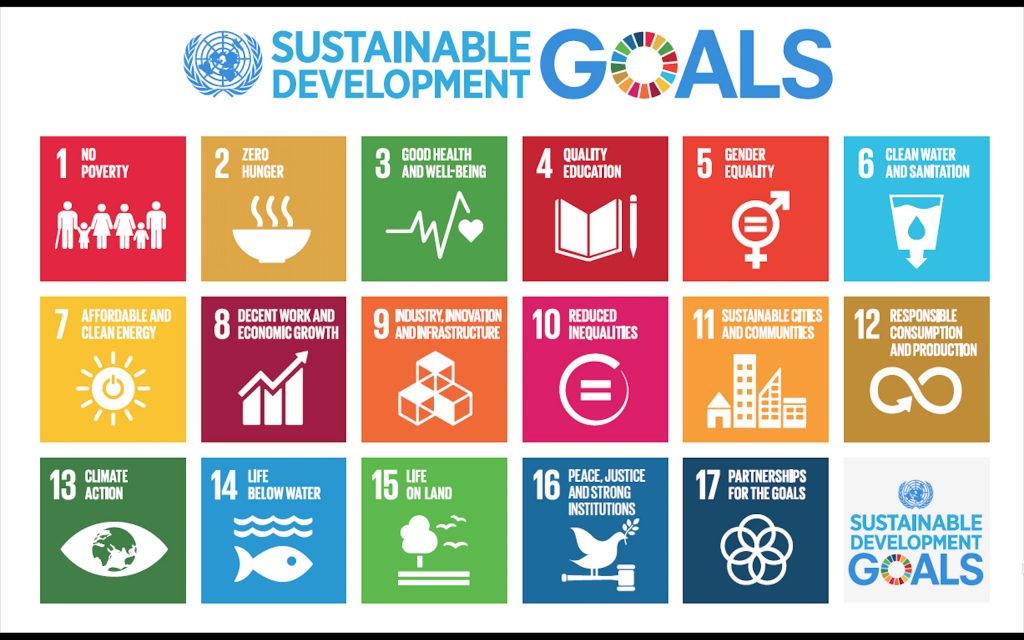By Akanimo Sampson
With barely 11 years to the expiration of the Sustainable Development Goals (SDGs) 2030, CSR-in-Action, a conglomerate of three sustainability driven businesses, consulting, training and advocacy says Nigeria is still lagging behind in achieving the goals.
Unfortunately for Nigeria, according to the experts’ group, “There are still some challenges that the country faces in the implementation of the SDGs – which translates as the reasons why we are behind in the sustainability journey.
“Some of which include limited economic diversification and continued vulnerability to external economic shocks, limited financial resources for investments in SDG-related activities, huge infrastructural and technological deficits, humanitarian crisis in the North-East, militancy in the Niger Delta, weak public sector institutional capacities and a lack of dis-aggregated comprehensive, up-to-date and reliable data.
“These factors have impeded the growth of the nation generally and the progress towards a sustainable future.’’
Going by the SDG Index and Dashboards Report 2018 (Global Responsibilities: Implementing the Goals), Nigeria ranks 150 out of 156 in SDG global ranking with a global index score of 47.5 points (10% less than region average); only ahead of Afghanistan, Yemen Republic, Madagascar, Democratic Republic of the Congo, Chad and Central African Republic.
With Sweden leading the global ranking with 85 points, followed by Denmark (84.6), Finland (83) and Germany (82.3), the conglomerate said, “clearly there is much work to be done in the implementation of proposed activities to achieve the SDGs in Nigeria.’’
The group is however, concerned with redefining the sustainability terrain in Africa through collaborative strategies with stakeholders aimed at attaining higher levels of corporate governance, workplace and sustainable philanthropy.
“We have a clear vision to propel collective transformation in Africa by promoting responsibility amongst all in their day-to-day individual or business activities,’’ the group said.
The Sustainable Development Goals (SDGs) – which came to effect in January 2016 – otherwise known as the Global Goals, are a universal call to action to end poverty, protect the planet and ensure that all people enjoy peace and prosperity.
While its17 Goals build on the successes of the Millennium Development Goals, new areas such as climate change, economic inequality, innovation, sustainable consumption, peace and justice, among other priorities are being included.
The goals are interconnected – often the key to success on one will involve tackling issues more commonly associated with another.
Nigeria was among the 189 countries worldwide that endorsed the United Nations Millennium Declaration in New York in September 2000, which led to the adoption of the eight time-bound Millennium Development Goals (MDGs) with several targets and indicators to be achieved by 2015.
According to the CSR-in-Action, “a review of the MDGs implementation in Nigeria revealed that the country had registered mixed results across the goals, geographic areas and gender groups. Despite progress on some indicators, many of the goals and targets had not been met.
“The slow pace of progress notwithstanding, Nigeria had registered multiple success stories such as reaching the threshold of eradicating polio, the implementation of a largely successful Conditional Grants Scheme (CGS) and mobilising community utilisation of health facilities through the village health workers scheme.
“Nigeria had in fact provided leadership on the MDGs within Africa and globally. Institutions, innovations and policies introduced in Nigeria were admired and replicated by other countries. However, the jump from the MDGs to the SDGs is not simply a question of extending the timeline and the ambition of the goals.
“New goals have been added, entirely new sectors have been introduced and the number of indicators has more than doubled. The breadth and depth of the endeavour will now involve a substantial multiplication of activities and an expansion of partnerships and institutions. Moreover, a number of the SDGs do not simply specify outcome of the goals, but also the means by which these goals should be achieved.
“An emphasis on rights, justice, social inclusion, sustainability, access to technology and reducing inequality will place new constraints and demands on policy at all stages – in planning, implementation and monitoring. Preparing for these complex policy issues over a time horizon of fifteen years will depend on laying a solid foundation.
“Luckily, Nigeria does not need to start from scratch. The experience of the MDGs, if properly leveraged, should provide the foundation for achieving the SDGs. Since the transition from the MDGs to the SDGs, Nigeria has made some achievements such as Integrating the SDGs into the economic recovery and growth plan, especially its implementation plan (currently ongoing), SDGs needs assessment and policy and scenario analyses, analytical work on ‘Fiscal Space for SDGs Financing’ completed, a holistic fiscal reform measures instituted to expand the available ‘Fiscal Space’, SDGs data mapping completed, SDGs data supply framework and ‘Data Bond’ developed, SDGs Baseline Survey completed, ‘National Social Register’ developed to ensure that ‘no one is left behind’ and public awareness and advocacy (continuous and ongoing) –general high level of awareness and political support for the SDGs.’’

